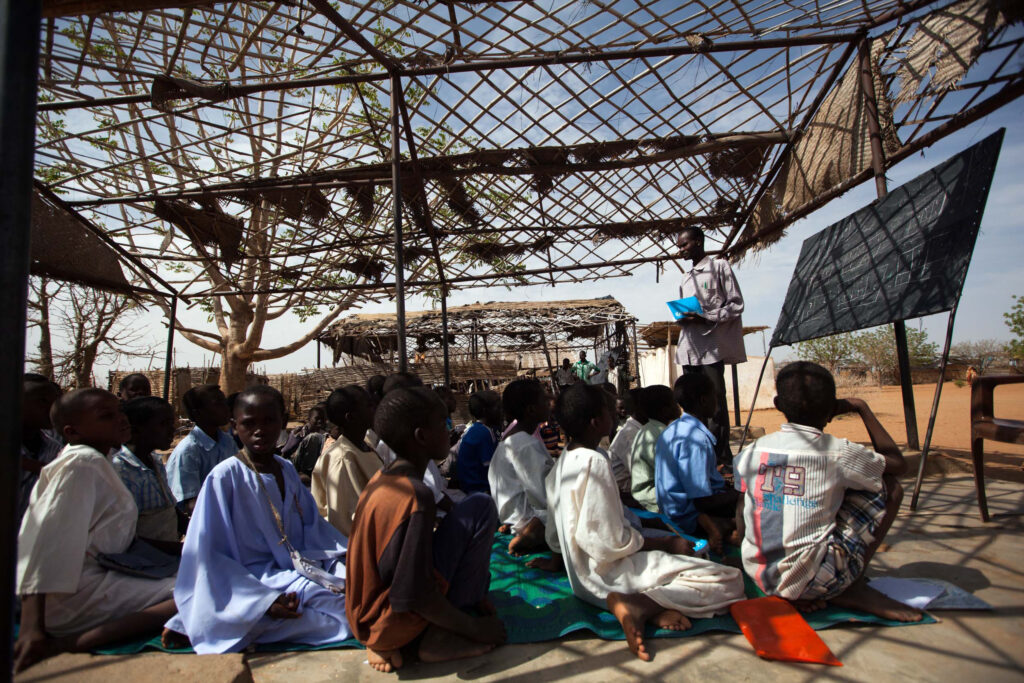South Darfur Sakali camp residents ‘left to suffer alone’

Makeshift classroom for newly displaced children in Nyala (File Photo: Albert Gonzalez Farran / UNAMID)
Displaced people living in the Sakali camp bordering Nyala, the capital of South Darfur, are urgently appealing to the Humanitarian Aid Commission (HAC) and aid organisations to expedite assistance to alleviate their dire conditions marked by hunger and disease.
Sheikh Abdallah Mohamedein, head of the camp services committee, yesterday told Radio Dabanga about the pressing need for humanitarian aid delivery, underscoring the severe shortages of food and medicine.
He lamented that the camp has been deprived of aid for years, exacerbated by soaring food prices and a dearth of employment opportunities.
Awatef Abdelrahman, head of the women’s association at the camp, decried the absence of aid and services, highlighting the desperate situation of residents lacking access to water, food, and essential healthcare.
A resident from the Sakali camp, issued a stark warning, reporting that the camp “has not received any humanitarian assistance since 2014”.
He stressed the urgency of intervention within weeks to avert an impending disaster, describing the current situation as dire and untenable.
Aziza Suleiman, another displaced resident, lamented the closure of job opportunities, particularly impacting women who previously found employment in various sectors.
She also highlighted the critical issue of water scarcity, leading to exorbitant prices and further exacerbating the camp’s plight.
Kalma camp
Last week, Radio Dabanga reported on the plight of displaced people in Kalma camp near Nyala, capital of South Darfur, where reports state a distressing surge in fatalities among vulnerable groups, notably children and the elderly, due to severe malnutrition within the camp.
Prior reports about the child mortality surge at the large camp have shown no signs of abating. Residents continue to appeal to humanitarian agencies for the swift delivery of essential food supplies to displaced individuals across the Darfur region.
Speaking to Radio Dabanga, activist Ishag Abdallah underscored the critical need to address the dire humanitarian conditions.
He emphasised that the “provision of food aid must not be politicised or leveraged as a bargaining tool to advance any political agendas”.
Highlighting the grim realities faced by displaced communities, Abdallah lamented the withdrawal of humanitarian organisations from the camps following the conflict’s start on April 15.
The withdrawal, attributed to security concerns, aggravated the scarcity of vital food and medical supplies, compounded by the inability to cultivate crops during the previous farming season.











 and then
and then